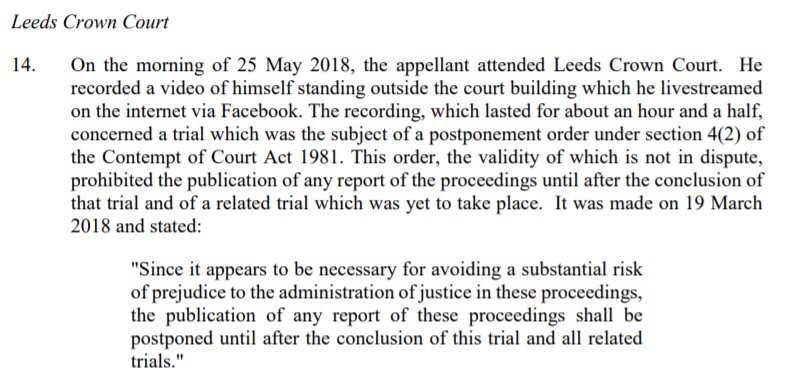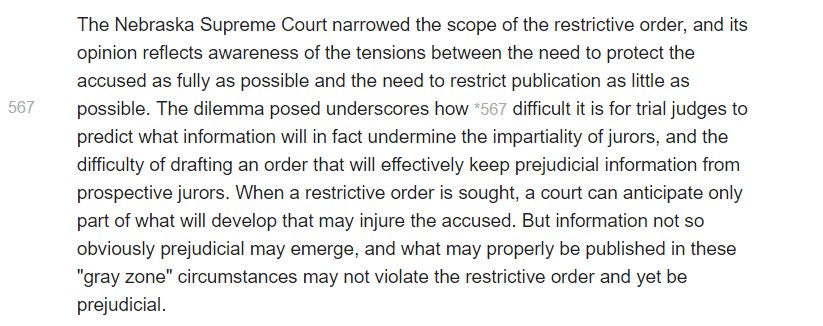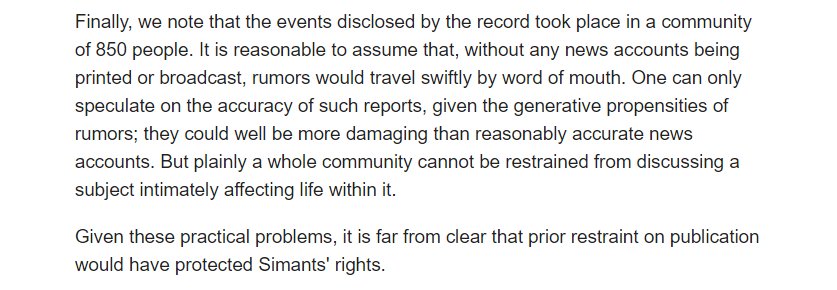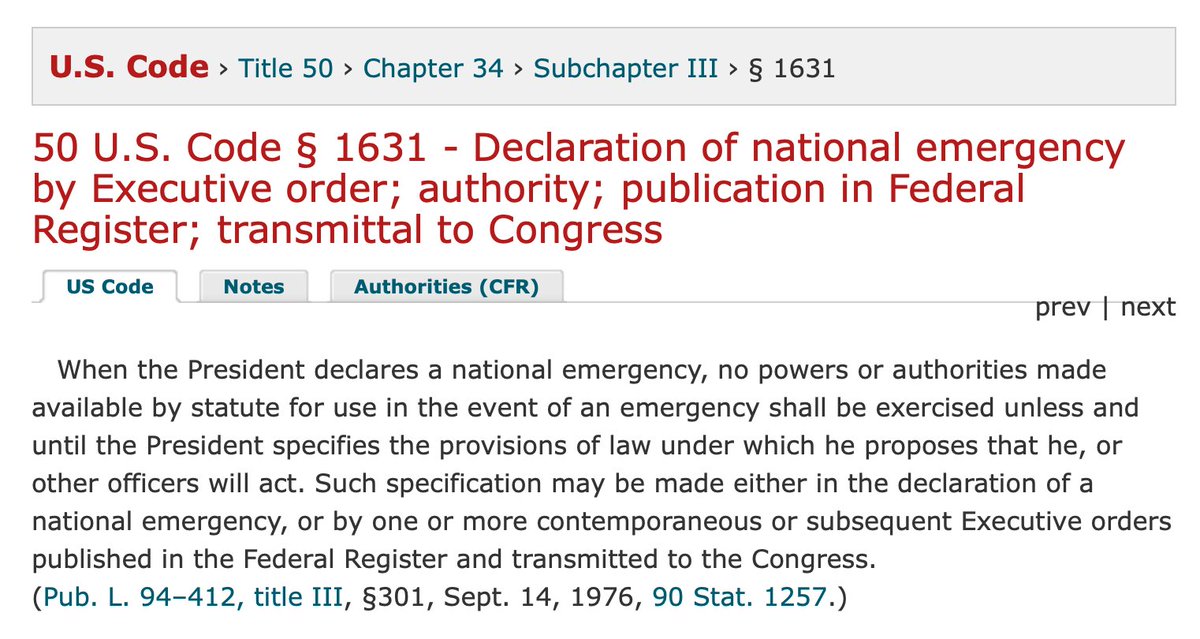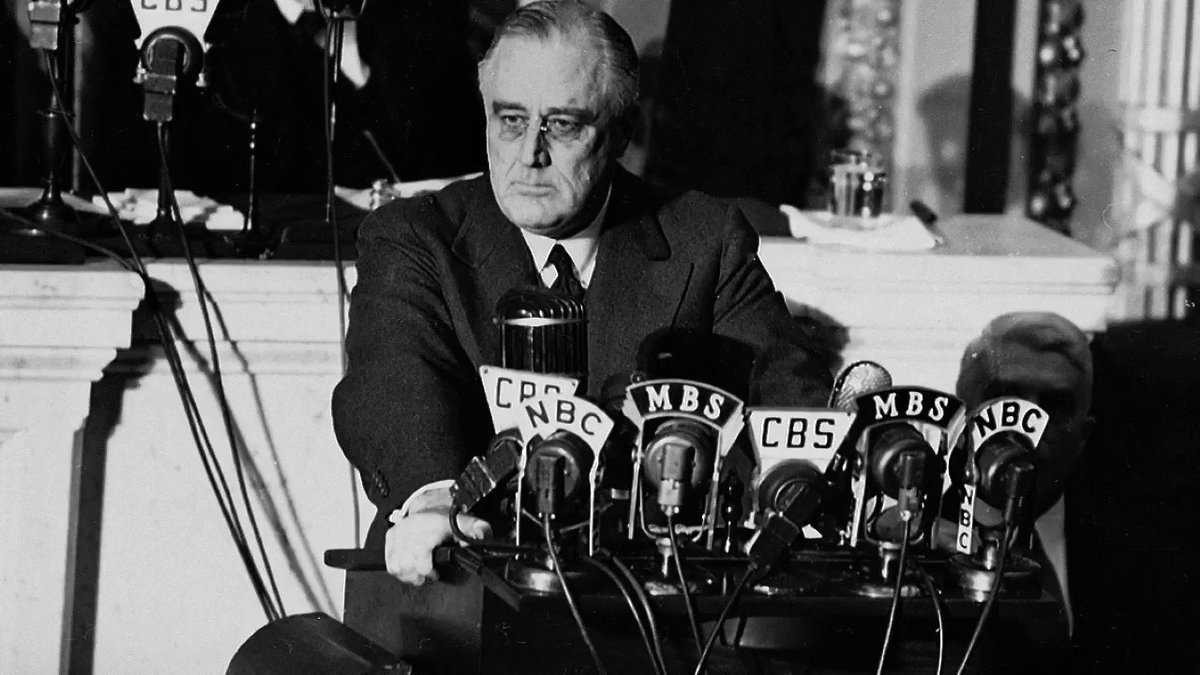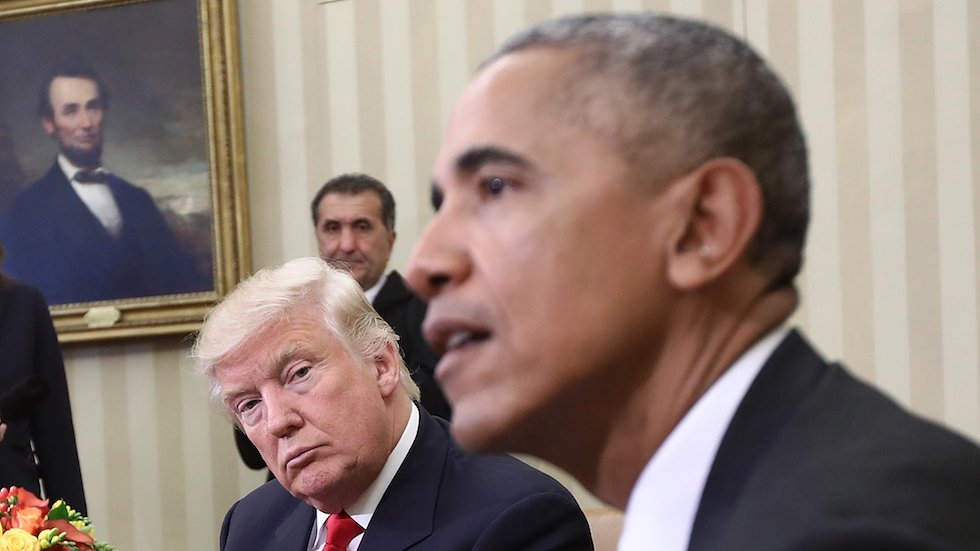Tommy Robinsonwas jailed for reporting on a criminal trial.
That is almost inconceivable in the United States.
We'll talk about the differences in UK and US law, what avenues Tommy's lawyers might pursue, and why UK law should be changed.
A thread.
#FreeTommy
In American law, we call that a "prior restraint" on speech. Prior restraints are presumptively unconstitutional under the First Amendment.
It is about the systematic sexual abuse of children in the UK.
It is absolutely in the public interest to ensure these matters are discussed FULLY by the press.
These reporting restrictions preclude that.
While they are going on? Better not talk about them, for fear of being called racist.
While they are being tried? Better not talk about them, we must prevent every possible taint to the trial.
Reporting restrictions are unjust. They make a mockery of free speech. They should go.
FIN.



